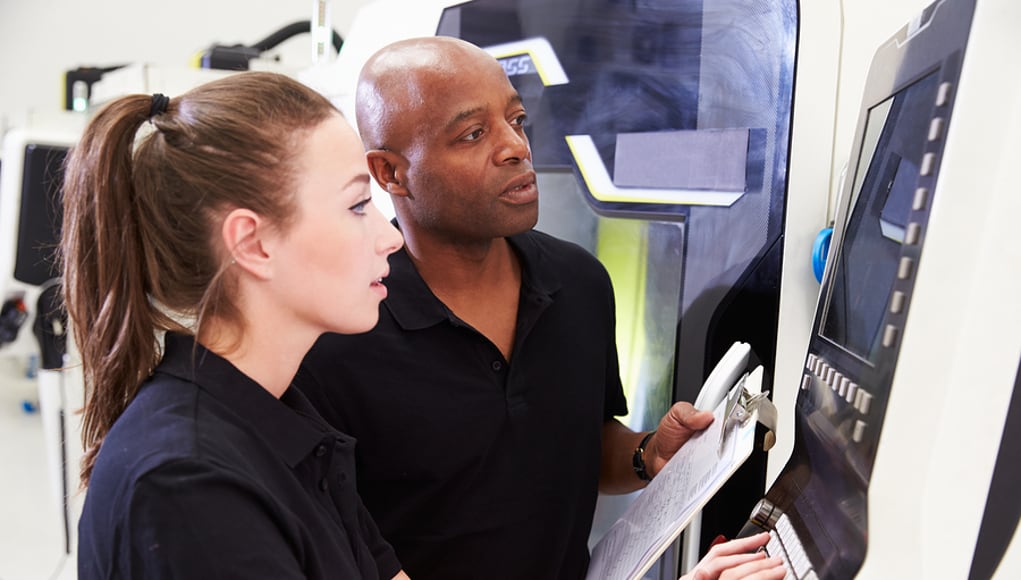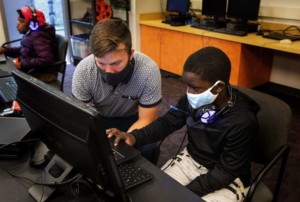Learning Through Community Health Partnerships

For the past year Clark Street Community School, the WI Music and Memory program, and the WI Alzheimer’s Institute (an academic center within the UW School of Medicine and Public Health), in collaboration with Wisconsin Alzheimer’s Disease Research Center, have embarked on a partnership that is doing just this.
And the results are powerful.
Facilitated by Kate Kowalski, Education Resource Manager at the Wisconsin Alzheimer’s Institute (WIA), Julie Hyland, Director of the WI Music and Memory Student Program along with CSCS faculty, the students at CSCS are accessing experiences and engaging in learning in a way that forges youth-adult partnerships, embeds field experts in high school classes, impacts communities, and nurtures curiosity about medicine, health, wellness, care-giving and policy.
The program structure is this. Students explore mental health, well-being, and brain science to better understand the medical conditions of Alzheimers and dementia. They focus much of this learning around the effects of music on the brain and the benefits of music for patients. They are then partnered with Alzheimer patients and caregivers to conduct ‘music’ interviews where they ask questions and learn about musical preferences and memories associated with particular songs. Students follow up by pre-loading and donating iPods with customized playlists for the families and patients they meet in these partnerships.
“We see students using their learning in this seminar as a springboard to so many important and personalized projects”, explained Heather Messer, one of the lead instructors in the Music & Memory seminar. “We had one student give a public presentation to raise awareness of the aging population within the prison system, another created a rap that highlighted her learning and understanding around brain function and mental health, and others dive into deeper relationships with aging family members. It’s incredible to watch how this seminar engages students on multiple levels.”
Kate Kowalski, Education Resource Manager at WIA, has coordinated numerous learning experiences on the UW Campus for the CSCS students. “Experts and volunteers from the Wisconsin Alzheimer’s Institute and the Wisconsin Alzheimer’s Disease Research Center have been excited to share their knowledge, expertise, and passion around the study of dementia, and offer a glimpse into the types of careers available in the field of Alzheimer’s and dementia.” explains Kowalski, about their partnership with CSCS.“It is our sincere hope that by educating young people about dementia, we are helping to facilitate a dialogue around dementia that will result in increased awareness, acceptance, and reduced stigma towards those impacted.”
With Kowalski’s coordination, students have met with Sara Berman, an MD, PhD student for an overview of what the Alzheimer’s brain looks like, symptoms, diagnosis, and possible treatment protocols. Berman also brought human brains for the students to interact with, including holding and examining the brains. CSCS students have opportunities to participate with the UW Neuropathology Conference at the morgue to witness Dr. Salamat teach medical students as he autopsied the brains of four recently deceased patients. Always welcoming, Dr. Salamat invites questions, and quizzes Clark Street students about physiological structures and functions related to what they were seeing during each of the autopsies.
Julie Hyland, Director of the Music and Memory Student Program, shares an equal enthusiasm for the Music and Memory Seminar and coordinates the CSCS student volunteers that make iPod playlists for dementia patients. “Providing information on the disease in order to understand the physical changes in the brain and how that transforms a person’s ability to communicate is key to empathy and understanding, which in turn reduces stigma and bias.” Hyland has facilitated multiple terms of the Music & Memory Program at Clark Street Community School and is an advocate of the ongoing work being done in this seminar.
“These partnerships really embody the spirit and intention of Clark Street Community School“, explains Messer. “Reciprocal partnerships with community organizations bring students, families and experts together to work toward common goals, in individualized ways, that better our world. That’s transformative education. That’s the kind of disruption we need.”
For more, see:
- Out of the Classroom, Off the Campus, and Into the Community
- 3 Elements of Deeper Project-Based Learning
- Developing a Sense of Place Means a Deeper Connection to Learning
Corinne Neil is an advisor and instructor at Clark Street Community School. Follow them on Twitter: @ClarkStSchool.
Stay in-the-know with all things EdTech and innovations in learning by signing up to receive the weekly Smart Update.






0 Comments
Leave a Comment
Your email address will not be published. All fields are required.